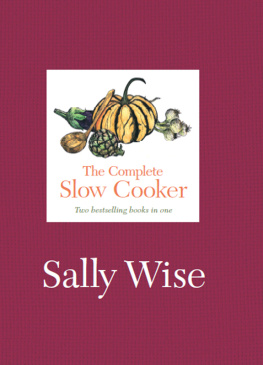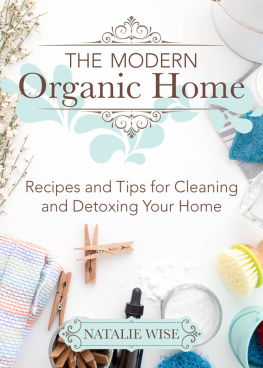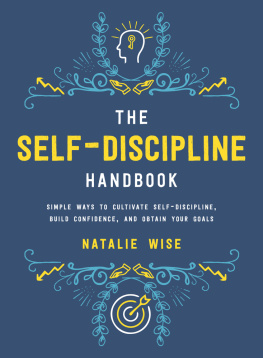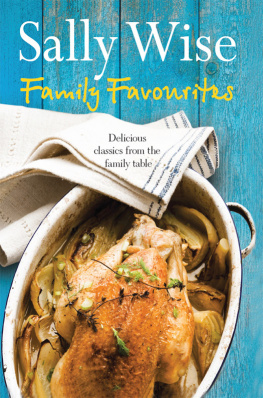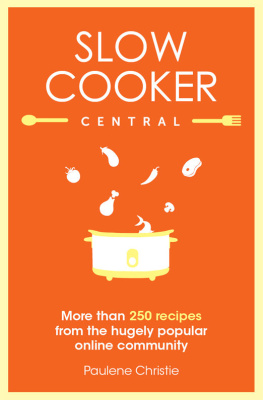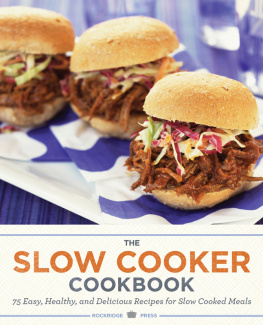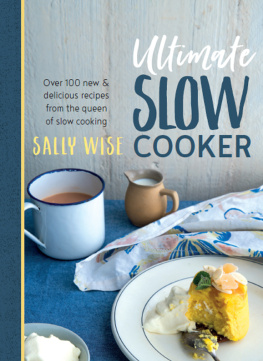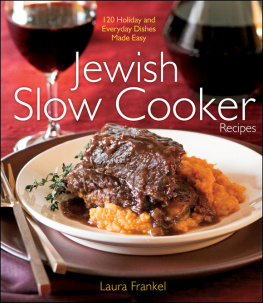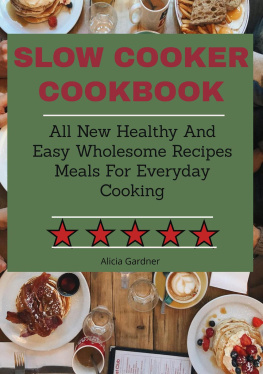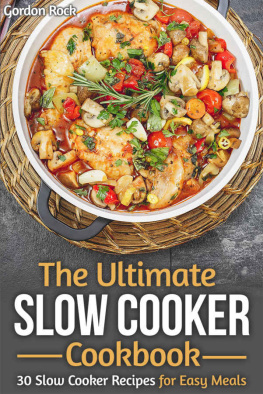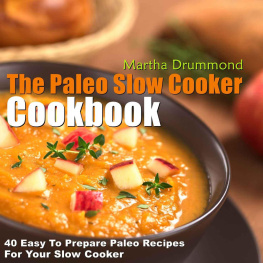Thanks to my wonderful family who share a passion for food and cooking and a love for working with seasonal produce.
Special thanks to ABC presenter Chris Wisbey for his ongoing encouragement and support. Much appreciation goes to the people who visit our house and become test tasting conscripts. Thanks to Bev and Phil from Doolishus Food Van at Eaglehawk Neck for their generous help in providing the best quality fresh fish for developing the seafood recipes in this book. Thanks also to Pauline OCarolan. To the exceptional team at ABC Books/HarperCollins who do such a great job in the publishing and promotion of my books with special thanks to Amruta Slee, Karen Penning, Julia Collingwood, Julie Bullock, Helen Biles, Matt Stanton and Nicola Wood.
For a time, there seemed to be a common perception that slow cookers (once more commonly known as crock pots) were a thing of the past, a fad that came and went in the 1970s.
For those of us who were young housewives at the time, however, there was hardly a benchtop that was not adorned with a resplendent orange slow cooker, put to good use in making casseroles, soups and other culinary delights for our families. With the advent of the microwave, and with women returning in ever greater numbers to the workforce, and the growth of ever-so-convenient fast food outlets, slow cookers faded into the background. They were eventually relegated to the depths of our cupboards and were often to be seen sitting forlornly on garage sale tables, discarded and unappreciated. But there is now a resurgence of interest in slow cookers that is causing many of us to think once more about their advantages. They make good economic sense. Most models available today only cost a few cents per hour to operate.
They also allow for forward planning in the preparation of meals. For working families, it means that dinner can be on the table in a matter of minutes after arriving home, when often the last thing we feel like doing is preparing a meal. In this way it also saves money by removing the temptation to buy pre-prepared meals on the way home. The slow-cooking process retains maximum nutrients, as all the delicious juices are kept in the food, and the extended cooking time results in better distribution of flavours. The cooker is very versatile in that it cooks soups, seafood, chicken and meat to perfection. Vegetables are far less likely to become mushy and unpalatable, and desserts are moist and delicious.
It frees up the oven for other uses, and needs little or no tending as it cooks. In summer, the kitchen does not become overheated through using the oven and in winter the kitchen is not filled with steam from pans cooking on the stove. Food is very unlikely to burn, and if we are held up at an appointment, rarely is any harm done to the food as it slowly simmers away in our absence. Not to be neglected is the fact that almost daily we receive a barrage of information about the dangers of eating processed and takeaway foods. We are looking more closely at the number of food additives on labels, suspecting that even if they do no harm, they certainly are not doing us a lot of good. With slow cookers, we can easily control the contents of our food, all the more important for those with food allergies or intolerances, or people on special diets.
Fats need to be removed from meats and poultry before adding to the slow cooker, which is also good news for our health. Slow cookers are amazingly adaptable. They are wonderful for having a hot meal to come home to after work or recreation. Even on a day at home, I find its so good to put something in the slow cooker early, leaving the rest of the day free in the sure knowledge that dinner is organised. I admit to being a messy cook, so it also allows time for a clean-up. A dinner can be started hours in advance so that by mealtime, all you need to do is serve.
A healthy breakfast is easy you can cook porridge, a fruit compote or ranchers eggs overnight, ready to serve as soon as you get up. I wondered for a long time how to accomplish the porridge factor it always turned to stodge using regular rolled oats; however, if you use steel cut oats, available from health food stores, the porridge is perfect and is also very economical and healthy. It is for all these reasons that I recently pulled my old slow cooker from the depths of the cupboard, feeling a little guilty for neglecting it for so long. Alongside it were three others, purchased at garage sales on a whim, in memory of how useful my old faithful had once been, promising myself to soon go back to slow-cooking with renewed enthusiasm. I recalled with fondness how my slow cooker had been associated with markers in my life. After bringing my third baby home from hospital, I used it each day, putting a simple meal into it in the relative calm of the morning, knowing that even if the sky fell in, I could rely on having a meal on the table that night.

